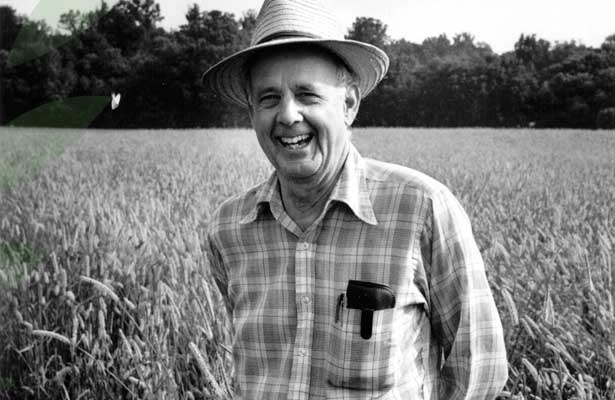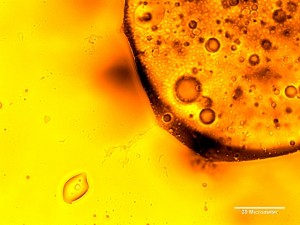The good news is that newly discovered bacteria biodegrade oil in the oceans, and have been chowing down on the oil spilled from the Deepwater Horizon (Earth and Sky, NPR, PBS, SFGATE) and from oil seeps for millions of years.
While it’s unexpected and wonderful that bacteria are biodegrading the oil, is begs the question:
Do we want to fill the seas with oil and oil-eating bacteria or oceans of clean water, coral, oysters, fish, turtles, and dolphins?
And how quickly can they consume the 5.1 million barrels that gushed into the Gulf at a rate of 60,000 barrels per day for 85 days begining April 20, continuing thru May and June, and ending July 15, 2011?
I suspect it will take more than a few weeks, months, or years.
And do those bacteria break down dispersants?
John Ehrenfeld defines “Sustainability” as “Flourishing.” Because they are small and short-lived, shrimp can handle a higher level of toxics than say dolphins, turtles, etc. We will know the Gulf is clean when there are flourishing populations of dolphins, turtles, and larger and longer-lived fauna, and when they have lower concentrations of heavy metals and petrochemicals in their tissues.
Wendell Berry, in Home Economics, copyright (c) 1987, (here, here) wrote,

To call the unknown by its right name, ‘mystery,’ is to suggest that we had better respect the possibility of a larger, unseen pattern that can be damaged or destroyed and, with it, the smaller patterns.
If we are up against mystery, then we dare act only on the most modest assumptions. The modern scientific program has held that we must act on the basis of knowledge, which, because its effects are so manifestly large, we have assumed to be ample. But if we are up against mystery, then knowledge is relatively small, and the ancient program is the right one. Act on the basis of ignorance. Acting on the basis of ignorance, paradoxically, requires one to know things, remember things – for instance, that failure is possible, that error is possible, that second chances are desirable (so don’t risk everything on the first chance), and so on.”
Both the Greeks and the Hebrews told us to watch out for the humans who assume that they make all the patterns.
This article is a postscript to the Popular Logistics series on the Deepwater Horizon / Macondo oil well disaster. This began with Earth Day for the Future, April 23, 2010, and concluded that “The handling of the Deepwater Horizon catastrophe is a textbook study of how not to manage a crisis. The government and the Obama Administration appear to have understated the problem and ceded responsibility to BP, which seems to have acted to protect the Macondo oil field rather than the Gulf of Mexico and the Gulf Coast.” This is borne out by the analysis of the government’s commission on the crisis, covered by NPR here and here.
Popular Logistics Series on the Deepwater Horizon / Macondo Spill
- Fossil Fuels and a Walk on the Moon, May 3, 2010.
- Drill Baby Drill or Drill Baby Oops, May 7, 2010.
- The Magnitude of the Spill, May 15, 2010.
- One Month After The Spill BP Siphoning 3,000 Barrels Per Day, May 20, 2010.
- Deep Water Horizon – The Chernobyl of Deepwater Drilling?, June 2, 2010.
- The Deepwater Horizon: 40,000 Barrels Per Day or 70,000, June 13, 2010.
- The Deepwater Horizon After the Macondo Well Explosion, June 19, 2010.
- Deepwater Horizon – Bombs and Hurricanes, July 1, 2010,
- Like a Bad High School Math Problem, July 14, 2010,
- Crisis Management and the Gulf Oil Spill, July 16, 2010,
- The Deepwater Horizon: The Good, The Bad, and The Ugly, October 7, 2010.

Pingback: Reuters: “First spill trial witness: BP put cost cuts over safety” | Discovery Strategist